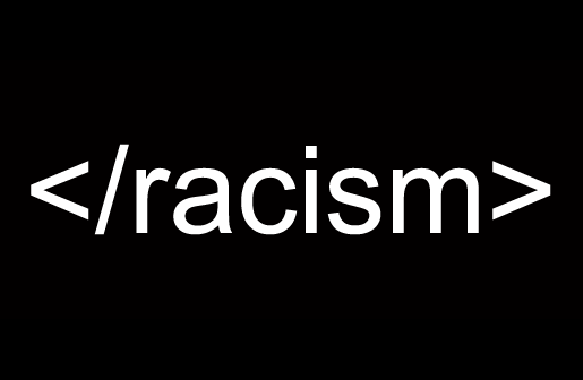By Tiffanie Drayton | Originally Published at Clutch Magazine. July 29, 2014
Since the post Civil Rights Era, the Black community has largely abandoned its collective struggle against continued racism and discrimination. Gone are the demands for justice and an end to inequality. They have been replaced by narratives of meritocracy, “colorblindness” and the bootstrapping individual negro who can single-handedly rise above his circumstance to beat the odds stacked against him. As Pharrell recently explained, today’s Black is a “new Black”– a Black blind to racism and the everyday struggles of its community. Blackness should evolve as we continue to redefine it for ourselves but not at the cost of dismissing the challenges we still face.
The “New Black” should be both forward thinking and informed. Regardless of the amazing feats accomplished by single individuals, a system of racism still exists in free America that is currently waging a war on the Black community. Millions are being taken prisoner. Through legislation, discriminatory legal practices and segregation, the clock of Black progress has been ticking backwards in recent history.
Here’s what you should know:
1. It hurts to admit, but racism is alive and well.
2. Morgan Freeman was wrong, race has everything to do with income inequality today.
3. The Black church has been both a friend and frenemy.
4. The success of African or Caribbean immigrants in America does not represent a non-racialized America.
5. Despite media depictions, Black men are good fathers.
6. “There are more Black men behind bars or in the legal system today, than there were slaves in 1850”–Michelle Alexander.
This dehumanization and unfair incarceration of the Black man is not new to America’s racist prison legacy. In Alabama in 1865, as Blacks gained their freedom, White racial stereotypes of them shifted from the happy, child-like and foolish Black slave to a lubricious, aggressive population of reprobates in need of restrain. Within two decades Blacks went from 2 percent of the prison population to 74 percent.
7. And there is Big money involved.
Want more information? Read “The New Jim Crow” by Michelle Alexander.
8. Schools are waging a war on our children.
- 40% of children expelled from school each year are Black
- 70% of children arrested or referred to law enforcement are Black or Latino
- Black students are 3.5x more likely to be expelled than White students
- Black students are twice as likely to not graduate high school.
9. American schools are becoming increasingly re-segregated.
10. Personal success of an individual does not negate the existence of racism.
11. Black people must reclaim “personal responsibility.”
12. Do not let the absence of the word “nigger” fool you, politics are still racist.
13. Race is false. The experience is true.
14. Black women need Black men out of prison.
15. The average African-American bloodline is more American than a White one.
16. Black cultural property is still under attack.
Today, Black faces are disappearing from R&B and Hip-Hop and being replaced with the likes of Justin Timberlake, Robin Thicke, Mackelmore and Iggy Azalea. Will Mackelmore and Iggy Azalea reign as Hip-Hop’s king and queen? Without a collective effort, most assuredly.
17. It is important to be inclusive of White people in discussions about racism.
18. “People of Color” is a complicated term.
19. We need new Black leaders.
More By Tiffanie Drayton >>>
Tiffanie Drayton is a freelance writer focusing in race and gender issues and a proud New School University Alumna. Follow her on twitter @draytontiffanie.
This piece was republished by EmpathyEducates with the kind permission of the Author
Related Read 18 Things White People Should Know/Do Before Discussing Racism












Leave A Comment